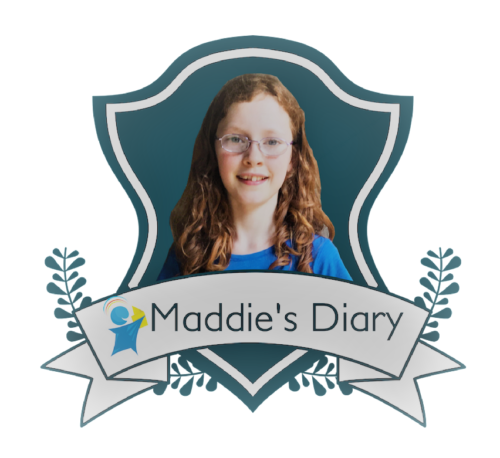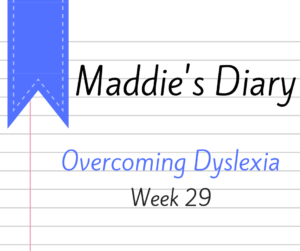Meet Maddie, a 10-year-old who was diagnosed with severe dyslexia, moderate dyscalculia, ADHD, and low IQ (low 80s). People who had evaluated her said that they had never seen dyslexia as severe as this before. Her parents had been told by more than one professional that Maddie would probably never read, and that they should try to find things that Maddie could be successful with outside of academics, because she would never be successful in academics.
Her mom, Kimberly, refused to accept this and worked tirelessly trying to help Maddie — with little success. “At this point, I have tried so many different things with little to no success that it is hard NOT to believe the professionals telling me that she is just never going to be able to read,” Kimberly told Edublox before she and Maddie embarked on a nine-month journey with Edublox.
This journey has now ended and below is a video summarizing Maddie’s progress from beginning to end (scroll down for the full story):
The full story…
Maddie’s story, before Edublox, as told by her mom
Maddie was in public school for kindergarten for two years, but because her reading was so low she was retained. The school offered her no additional help, and most certainly no specialized help, so I pulled her out of school to homeschool. My theory was that they just weren’t teaching enough phonics, and if I taught her phonics, she would be able to read. That obviously did not work out, so I tried a different program, **** (name omitted). This program did not help at all, so I eventually took her to be tested for learning disabilities. Her results obviously showed severe deficits, and she was subsequently diagnosed with dyslexia.
We were recommended to use an Orton-Gillingham-based program, so I did my research and found what seemed to be the “gold standard” for home use, the XXXX system (name omitted). I purchased the system, and I immediately encountered many problems. The developer offers unlimited free phone support for anyone using her system, and I was calling every day with some new issue that had popped up. I think she got quite tired of my calls, and most of the time she told me that in all her years of working with dyslexic children and adults, she had never encountered many of the problems that I was having. She eventually recommended that we work with a specialized tutor who could better address our needs. So, I found a highly qualified NILD educational therapist who specializes in severe dyslexia and uses the system.
We have been working with her for over a year via Zoom on the computer. Maddie is now able to sound out words, but she does it slowly and painstakingly, and even though we work on fluency every day, she has very little to no fluency, even with simple CVC words. She continues to guess at words, even when reading words that she knows phonetically how to sound out, so she makes a high percent of errors when reading. Even the educational therapist seems baffled by this. Only a few days ago, she told me that she had never had another student whose fluency did not improve with her tutoring. Also, there has been very little improvement in directionality issues, BDPQ reversals, naming problems, and overall language, vocabulary, and verbal skills, despite the specialized tutoring, speech therapy and visual therapy.
She has severe issues with naming, with almost everything, even just in daily life. For example, we were making chili for supper the other day, and she kept calling it spaghetti. She quite frequently mixes up the words for SOUP and SPAGHETTI (and apparently chili looked enough like soup that she mixed that up too), though I have no idea why. She also mixes up the terms “minute”, “hour”, “day”, “week”, “month”, and “year”. She might say that she needs to cook something in the microwave for two hours instead of two minutes, or she might say that Valentine’s day is one month away instead of one week. Another example is bodies of water: she might call the ocean a river or vice versa, which makes it very difficult when studying geography, history, etc. Another example is mixing up the terms “street”, “town”, “city”, “state”, “country”, and “continent”. If asked what state she lives in, she might say the name of our town or the United States of America instead of our state. These severe naming issues make daily life very difficult, because it is hard to understand anything she says. She has severe difficulty describing anything, instead she frequently says words like “thing”, “stuff”, “it”, “that”, or “you know” because she can’t think of the words she needs to describe something.
We have also reached a point in the XXXX system where there seem to be SO many rules, that I can’t even keep up with them all, so how can I expect my child to be able to learn to read while trying to remember so many rules. There are rules about spelling, rules about syllable division, then there are exceptions to the rule, then exceptions to the exceptions. We are not even halfway through the system, so I can only imagine how many rules there are left to learn, and we are already feeling overwhelmed by them. If I had to learn to read that way, I would never be able to read, and I’m afraid that is what will happen if we continue on this course.
I have been quite intrigued by reading through all of the information on your website. I had thought myself quite well-versed in dyslexia, but the more I actually look into the theories on dyslexia, the more I realize that there really is no consensus about what it is or what causes it. As you have so aptly described in one of the articles you referenced, you cannot cure something if you do not know the cause. I had thought all along that the root cause was a disability in the way the brain processes language, as well as a deficiency in phonemic awareness. Most programs try to remediate the phonemic awareness and expect that this will remediate the reading, but that has not worked in our case. I also find the studies comparing the brains of poor readers with and without dyslexia and comparing dyslexic readers to younger readers at the same reading level very interesting. I had never thought that these differences in the brain could be merely a result of poor reading rather than the cause.
I had recently found the book Equipped for Reading Success and ordered the book and read it over a few days. I was quite interested in his description of orthographic mapping and his methods to improve mapping and thus improve fluency. His theory is that there is no such thing as dyslexia, only children who have poor phonemic awareness and poor orthographic mapping because of this. So his theory, and the whole book, is that if you remediate the phonemic awareness, the dyslexia will no longer exist. At first, I was quite excited by this idea, but the more I thought about it, the more I realized that this couldn’t be. Here’s why: the symptoms of dyslexia that Maddie has are so much more vast and pervasive through all areas of life, not just reading, that it is impossible that remediating only the phonemic awareness would “fix” everything. It makes much more sense to me that the problem would be much broader than just phonemic awareness, and your article on understanding dyslexia reflects this idea.
I thought you might be interested in seeing some samples of her writing.
.
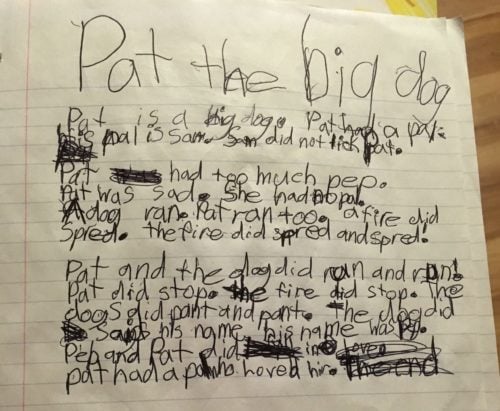
.
She also wrote this story a few days ago. I had her correct all of the mistakes, so I will just type what she originally wrote:
.
The hunt
The mom cheetah (I spelled that for her) and her cud (cub) is going on a hunt. they are going to hunt for mise (mice). The cud (cub) has fond (found) a mase (mouse). She is going tor (toward) it. She is going to ete (eat) it. her mom is qrod (proud) fo (of) her cud (cub), but she must len (learn) hou (how) too (to) rely (really) hunt.
.
Kimberly,
Maddie’s mom
************
Math:
Kimberly also submitted an example of Maddie’s math work:
.
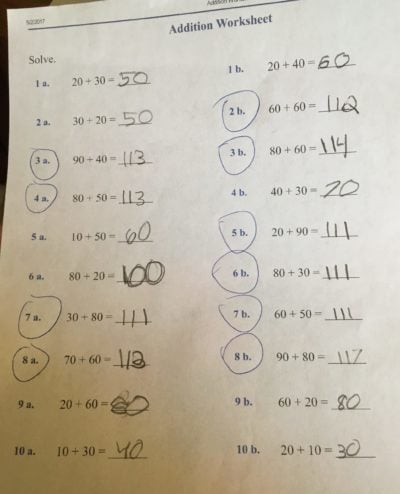
.
Reading:
Below is a video of Maddie reading unprepared from a book, a Second Grade Reading Word List, as well as a Third Grade High Frequency Word List.
.
Maddie’s assessment results
The first testing was done in September 2015, after Kimberly had spent about a year trying to teach Maddie a phonics-based reading program at home. The second testing was done after about seven months of using an Orton-Gillingham-based program at home.
First assessment, September 2015:
Maddie was administered ten subtests of the Wechsler Intelligence Scale for Children – Fifth Edition (WISC-V). She achieved a Full Scale IQ score of 87, which is Low Average.
.
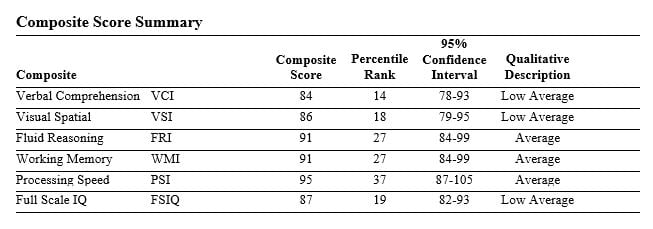
.
Maddie was also administered the Wechsler Individual Achievement Test, 3rd edition (WIAT-III) to assess her current academic achievement. Her results are reported below:
.
 .
.
Maddie was diagnosed with a reading disorder.
.
Second assessment, September 2016:
To evaluate Maddie’s overall intellectual capacity, she was administered the Wechsler Abbreviated Scale of Intelligence – Second Edition (WASI-II). On this test, Maddie achieved a Full Scale IQ score of 81, which is in the Low Average range and above approximately 10 percent of her same-aged peers.
.

.
To examine Maddie’s visual-motor integration and visual perception skills, the Beery Developmental Test of Visual-Motor Integration was administered. Compared to others her age, Maddie obtained an overall standard score of 85 (16th percentile), visual perception standard score of 96 (39th percentile), and motor coordination standard score of 84 (14th percentile), all of which fall in the Low Average range.
To evaluate phonological processing, the Comprehensive Test of Phonological Processing (CTOPP) was administered. The scores are calculated by comparing Maddie’s performance to a group of individuals her own age.
.
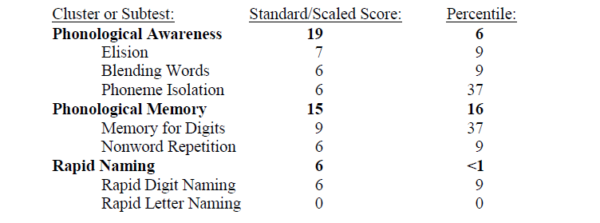
.
To evaluate Maddie’s levels of achievement across a variety of academic tasks, she was administered the Wechsler Individual Achievement Test, Third Edition (WIAT-III). The WIAT-III measures current academic skills, including reading, mathematics, and oral language.
.


![]()
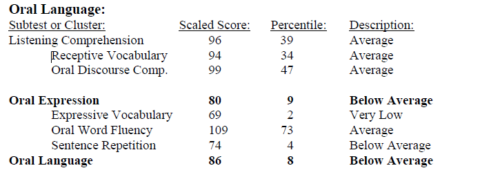
.
- Specific Learning Disorder with Impairment in Reading, Severe
- Specific Learning Disorder with Impairment in Mathematics, Moderate
- Attention-Deficit/Hyperactivity Disorder, Predominantly Inattentive Presentation
.
Maddie’s Edublox program
A program was customized to address Maddie’s deficits. Kimberly worked with her for 2 hours per day, 5 days per week for 13 weeks. Part of Kimberly’s work was to supervise the Edublox Online Tutor Reading exercise. An Edublox tutor taught Maddie via Zoom for 30 minutes per day and 40 minutes per day, 5 days per week was spent on the cognitive exercises of Edublox Online Tutor — Maddie did these cognitive exercises on her own. After the 13 weeks the amount of work was reduced to one hour per day. To improve Maddie’s vocabulary a language exercise was implemented, which does not require any active time.
.
Maddie’s Diary
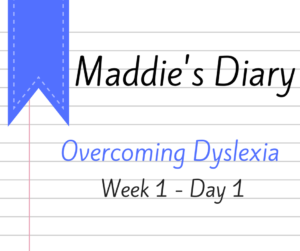 Our first official day of the Edublox system, and Maddie really enjoyed it! Her favorite parts were the online system and learning new words! She said learning the “new, hard words” was fun. Her least favorite part was math. She said it was “really hard”, but I liked it because I could tell that it was really making her think.
Our first official day of the Edublox system, and Maddie really enjoyed it! Her favorite parts were the online system and learning new words! She said learning the “new, hard words” was fun. Her least favorite part was math. She said it was “really hard”, but I liked it because I could tell that it was really making her think.
I love the directionality exercises and the bdpq exercises. We have done some similar to these in vision therapy (which we did for almost a year), but not to this extent, and they never reached the point of automaticity that we will be achieving here.
The exercises are very well designed, they are multisensory, and I am very hopeful that they are exactly what we have been missing. I am SO excited that we have finally found something that I think is really going to work after having tried so many things that have failed!
.
.
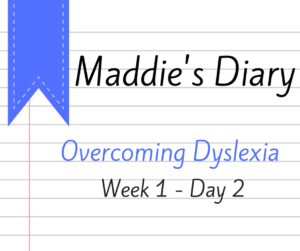 Today went even better with all of the activities and exercises. Maddie is really working hard, and it shows. She has been interested in reading EVERYTHING today! She is even trying to read over my shoulder as I am typing this
Today went even better with all of the activities and exercises. Maddie is really working hard, and it shows. She has been interested in reading EVERYTHING today! She is even trying to read over my shoulder as I am typing this ![]() and that is a first! She was recognizing words all over the place when we went shopping today.
and that is a first! She was recognizing words all over the place when we went shopping today.
The only problem is that she is still not attending to small differences in words. For example, she noticed the word “Women” and was really excited, but she read it as “woman”, which is one of the words she is working on. She also noticed the word “vegetable” but she read it as “vegetables” for the same reason. I pointed out the difference between the word and what she read it as (and I told her the correct word), but I am concerned that she did not notice the difference herself. Later today, she noticed the word “oranges” and read it correctly, and she was very excited as she pointed out that she could read it.
.
.
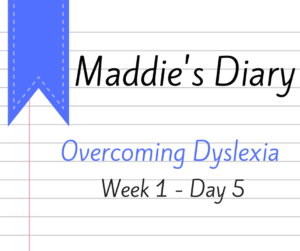 Our first week of Edublox has been an adventure! We are trying and doing new things, and they all seem to be just what we needed. So far, I haven’t seen any huge results, but Maddie does seem to be a LOT more interested in reading. She also is noticing the words that are all around her, and have been all of her life, though she has taken little notice of them. Most of the time, when we are driving or walking through stores, she takes no notice of signs or anything, but this week, she has been interested in so many of them. I have been very surprised! A lot of them she has been able to read, though some she has needed help on. I think that it is just a confidence and awareness that maybe she COULD read those words now, whereas before, she felt like there was no use in trying.
Our first week of Edublox has been an adventure! We are trying and doing new things, and they all seem to be just what we needed. So far, I haven’t seen any huge results, but Maddie does seem to be a LOT more interested in reading. She also is noticing the words that are all around her, and have been all of her life, though she has taken little notice of them. Most of the time, when we are driving or walking through stores, she takes no notice of signs or anything, but this week, she has been interested in so many of them. I have been very surprised! A lot of them she has been able to read, though some she has needed help on. I think that it is just a confidence and awareness that maybe she COULD read those words now, whereas before, she felt like there was no use in trying.
Maddie has always been a hard worker, and she is working very hard at all of the exercises in Edublox. She LOVES the computer portion of the program, and she loves how supportive and encouraging it is. She is always telling me the nice things that it told her about how well she was doing, and I think it really boosts her confidence to see how much she is progressing from day to day. She actually seems to enjoy almost every portion of the program, but I think her other favorite part is when she is learning new words with Susan. I would say that her least favorite part of the program is math, but she still works hard and does her best, and she loves seeing how far she has come and how much she is learning!
.
.
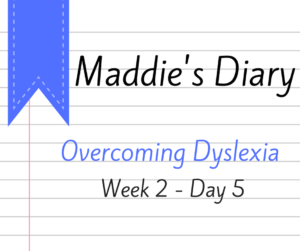 Our second week of the Edublox program has gone well, though this week has been quite hectic. We were having some construction done on our house this week, so it has been a little bit of a struggle with all of the noise and commotion going on. Despite the distractions, we have been progressing in all of our exercises. This week we added subtraction for math, and that went quite well. In fact, though Maddie thought she would have a lot of trouble with the subtraction facts, she actually did better than she did with the addition. She has also progressed to the next step in the counting exercise, the directionality exercise, and the beanbag exercise. She actually really likes doing these exercises and is always trying to see if she can do it better in order to progress to the next step.
Our second week of the Edublox program has gone well, though this week has been quite hectic. We were having some construction done on our house this week, so it has been a little bit of a struggle with all of the noise and commotion going on. Despite the distractions, we have been progressing in all of our exercises. This week we added subtraction for math, and that went quite well. In fact, though Maddie thought she would have a lot of trouble with the subtraction facts, she actually did better than she did with the addition. She has also progressed to the next step in the counting exercise, the directionality exercise, and the beanbag exercise. She actually really likes doing these exercises and is always trying to see if she can do it better in order to progress to the next step.
I am starting to see some improvement in her BDPQ confusion. She has not written any of these letters backwards this week! She also made much less mistakes in reading these letters as well. In her sessions with Susan, she is up to 100 words, in just two weeks! She has also been more interested in reading this week. She picked up a comic paper and started reading it one day, and she also started reading the book we were reading at bedtime, because I was taking too long, and she got tired of waiting on me to read it. ![]() Though she did make some mistakes, overall, there seems to be some improvement in her reading, and especially in her interest in reading. We have also started the language exercise this week as well, and I am already seeing some new vocabulary that she has picked up just in a few days of doing the exercise. We are looking forward to learning more and excited about what this next week will bring!
Though she did make some mistakes, overall, there seems to be some improvement in her reading, and especially in her interest in reading. We have also started the language exercise this week as well, and I am already seeing some new vocabulary that she has picked up just in a few days of doing the exercise. We are looking forward to learning more and excited about what this next week will bring!
.
.
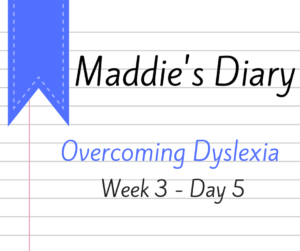 Our third week of Edublox has gone well. This week we started a new spelling exercise that went surprisingly well! We also added multiplication to our math program this week, and it has gone better than I expected. We are progressing in most of the other exercises as well. I am also still noticing an increasing interest in the written word, and she quite frequently tries to read things that she would never have tried before. Also encouraging is that she is also increasing in accuracy when trying to read these things. She is also advancing in most of the EOT program, and she still enjoys this part of the program the most. Maddie is working very hard, and she is looking forward to all of the new things she can learn!
Our third week of Edublox has gone well. This week we started a new spelling exercise that went surprisingly well! We also added multiplication to our math program this week, and it has gone better than I expected. We are progressing in most of the other exercises as well. I am also still noticing an increasing interest in the written word, and she quite frequently tries to read things that she would never have tried before. Also encouraging is that she is also increasing in accuracy when trying to read these things. She is also advancing in most of the EOT program, and she still enjoys this part of the program the most. Maddie is working very hard, and she is looking forward to all of the new things she can learn!
Compare the “before” with Week 3, when taught by her live tutor:
.
.
.
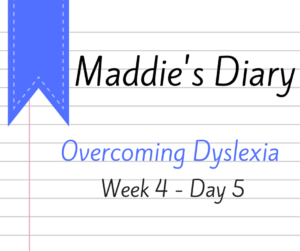 Somebody asked me this week about the differences between the Edublox program and Orton-Gillingham. They are very different, like night and day really. To be honest, it has been a little scary stepping out and trying something so drastically different from what I am used to! Edublox does a lot of work on all of the underlying issues that cause dyslexia, while Orton-Gillingham focuses on intensive phonics and phonemic awareness only. Orton-Gillingham is very explicit and systematic in teaching phonics, to the point of an extraordinary number of rules (and all of the exceptions to the rules), while Edublox just teaches very basic phonics, and seems to focus on building visual memory, auditory memory, visual spatial ability etc. through multisensory exercises, repetition, and building a foundation of skills that are practiced to the point of automaticity, not just until the child is able to do the skill.
Somebody asked me this week about the differences between the Edublox program and Orton-Gillingham. They are very different, like night and day really. To be honest, it has been a little scary stepping out and trying something so drastically different from what I am used to! Edublox does a lot of work on all of the underlying issues that cause dyslexia, while Orton-Gillingham focuses on intensive phonics and phonemic awareness only. Orton-Gillingham is very explicit and systematic in teaching phonics, to the point of an extraordinary number of rules (and all of the exceptions to the rules), while Edublox just teaches very basic phonics, and seems to focus on building visual memory, auditory memory, visual spatial ability etc. through multisensory exercises, repetition, and building a foundation of skills that are practiced to the point of automaticity, not just until the child is able to do the skill.
There is very little repetition built into the Orton-Gillingham program, though we did quite a bit of repetition due to difficulties in retention and lack of fluency. Though, looking back after starting the Edublox program, we did not do anywhere near the amount of repetition as we are doing now, and we were trying to do too many words at once. In just this short time of doing Edublox, she has already forgotten the rules that she learned doing Orton-Gillingham, even though she has known many of them for over a year! I thought some of them were automatic by now, and thus stored in long-term memory, but obviously they weren’t. So I guess that shows that it takes a lot more to get to the level of automaticity (and long-term memory) than I thought. I think that is the key in the Edublox program. We don’t just practice something until she can do it, we keep going until whatever we are working on is automatic and effortless, which takes much more practice and repetition than I ever thought!
On that note, this week has been mostly working on building this foundation through lots of repetition. We did not advance on most of the parts of the program this week, though we did add a new spatial exercise and she did advance in one exercise of Online Tutor that she had been unable to before this week. We also advanced on reading and did a lot more work on spelling this week, and that went well. We are continuing to work hard, and we are looking forward to next week!
.
.
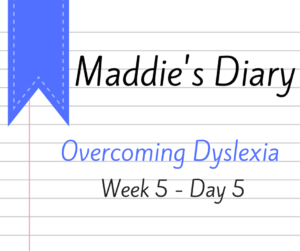 This has been our fifth week using Edublox, and we seem to be at a plateau in most areas of learning. We have been drilling a lot of the same things this week, but I am hoping that we will start seeing more rapid progress soon. She is progressing in the Edublox Online Tutor in some more areas that she was having difficulty with, so I am hoping that more progress in those areas will start to show more in her reading, spelling, and math.
This has been our fifth week using Edublox, and we seem to be at a plateau in most areas of learning. We have been drilling a lot of the same things this week, but I am hoping that we will start seeing more rapid progress soon. She is progressing in the Edublox Online Tutor in some more areas that she was having difficulty with, so I am hoping that more progress in those areas will start to show more in her reading, spelling, and math.
She did start a new reading exercise with Susan this week, and she has done really well with it. Not only that, but she also thought it was a lot of fun! She also seems to be improving some on BDPQ confusion. This week, if she wrote any of them incorrectly, she caught them herself! I also think that I am seeing some improvement from the language exercise, because I have noticed several new words in her vocabulary recently from the language exercise. Overall, it has been slow progress this week, but hopefully we are laying the foundation for improved learning in the future.
Compare the “before” with Weeks 3 and 5, when taught by her live tutor:
.
.
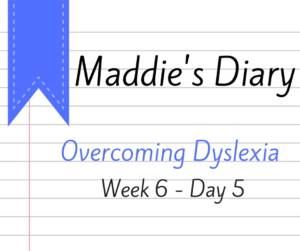 This week, Maddie has gotten over the plateau that we were on last week. She also read a book this week just for fun, the first time this has every happened! She needed help with the big words, but overall she did pretty well. It was a book about lions, so she enjoyed learning about one of the animals from Africa!
This week, Maddie has gotten over the plateau that we were on last week. She also read a book this week just for fun, the first time this has every happened! She needed help with the big words, but overall she did pretty well. It was a book about lions, so she enjoyed learning about one of the animals from Africa!
Lately I have been contemplating all the difficulties and challenges of having a child with severe dyslexia. When Maddie was first diagnosed, I was relieved to finally have an explanation for her struggles, but at the same time I was worried, anxious, and disheartened by the difficult journey ahead. There were several people telling me that she would probably never read, that she would need special assistance for the rest of her life, and that I should try to steer her away from career choices that involve success in academics. It was hard as a mother, who had wonderful visions of her child’s future, to think that it might not be possible, to think that her options were diminished due to something as seemingly simple as reading. Now, I am not a quitter, and I don’t usually give up on things, so I resolved that this would not be the case with my daughter. I resolved that I would do everything I could to help her become an accomplished reader. The problem was, no matter how great my resolve and no matter how hard we worked, we were still getting nowhere. I researched all of the best programs for dyslexia, and we diligently worked at all of them. I did everything that I could think of to help her, including speech therapy and vision therapy. With every new thing we tried, I had hope that maybe THIS one would work. However, over time, I began to lose hope. I began to doubt that anything would work, and I began to view anything that claimed to “treat” dyslexia as nothing more than a scam to take the money of a desperate parent trying to help their child. I had come to the conclusion that maybe this WAS a lifelong struggle that would never go away. Maybe they were right, and I should start steering her toward things in which she could be successful outside of academics.
If you do not have a child with dyslexia or know anyone who cannot read, you cannot imagine the feelings of hopelessness, disappointment, and desperation to find something, anything that will work. You cannot imagine how limiting it is in the life of a child to be unable to read anything, to be surrounded by the written word and it being forever out of your reach. Think about all of the things around us that are in written form: signs, pamphlets, instructions, cereal boxes, recipes, sewing patterns, worksheets, movies, electronics, the internet, the Bible, board games, birthday cards, schedules, the buttons on household appliances (such as dishwasher, washer, dryer, oven, etc.), and the list goes on and on. We live in a world that revolves around literacy, and those without are so limited that it hurts to think about it. I literally hurt for my child every day because of all of the things she is missing out on in everyday life. Think about going through life depending on others for even simple things such as reading the buttons on the washer to choose the right cycle to wash your clothes, or getting a new toy and having to wait on a parent to have time to read the instructions to you, or wanting to know more about a subject that interests you but being unable to look it up or find more information on it, or wanting to make a recipe on your own but being unable to even read simple instructions and ingredients, or wanting to do a sewing project independently and not being able to read even the simple instructions in the kids sewing book, or believing in God and wanting to study His word, but being unable to do so because you simply can’t read it.
I think about all of the times I read something, anything, throughout the day, and sometimes it makes me cry just because I know it is something, seemingly so simple, that my daughter cannot do. In fact, I am crying as I write this just thinking about it. The gift of reading is something so precious and crucial to modern life, but it is something that most of us take for granted. I desperately wanted to give this gift to my child, no matter what it took. So I started looking at the latest research on dyslexia, instead of just reading websites from “experts” on the subject. What I found surprised me. It appeared that, in America at least, there isn’t a lot of actual research going on about dyslexia. Most of the research I found was from other countries. I also found that the “gold standard” of treatment for dyslexia, which was supposedly Orton-Gillingham, actually did not have the research base that I had been led to believe. I discovered that, despite all of the information out there on dyslexia, there is actually no consensus in the scientific world on what dyslexia actually is and what causes it. There are many theories, but no consensus. My first thought was, if they don’t even know what it IS, then all of our efforts are hopeless, because you can’t treat something if you don’t know the cause. Then, in my research, I stumbled upon the Edublox website. The website seemed to have answers to so many unanswered questions, but I was still afraid to hope. When I contacted Susan, I wasn’t sure what kind of response I would get, but I never expected the depth of knowledge and patience to answer all of my questions. I am still somewhat afraid to hope about the future, but I have found myself contemplating all of this over the past week. I have inadvertently found myself dreaming again about what the future may hold for my daughter, and starting to hope that maybe her future isn’t filled with limitations, but with possibilities.
.
.
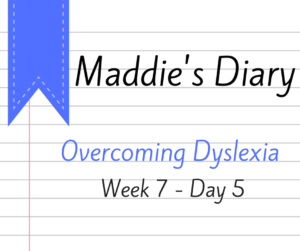 This week we have started seeing some real gains in pretty much all areas. I have noticed a great improvement in her spelling during her tutoring sessions this week especially. She doesn’t seem to just be writing down random letters anymore, and when she does make a mistake, it is usually a small one. If my count is correct, she is up to about 150 spelling words with EOT, and about 50 more challenging words with Susan. She is almost finished with the first portion of the EOT reading and spelling program. She is getting along very well in math now, and she will be ready for division next week. She seems to have really gotten over her plateau this week and is starting to plunge ahead. I am feeling great about her current progress, and I am encouraged by the improvement we have seen this week!
This week we have started seeing some real gains in pretty much all areas. I have noticed a great improvement in her spelling during her tutoring sessions this week especially. She doesn’t seem to just be writing down random letters anymore, and when she does make a mistake, it is usually a small one. If my count is correct, she is up to about 150 spelling words with EOT, and about 50 more challenging words with Susan. She is almost finished with the first portion of the EOT reading and spelling program. She is getting along very well in math now, and she will be ready for division next week. She seems to have really gotten over her plateau this week and is starting to plunge ahead. I am feeling great about her current progress, and I am encouraged by the improvement we have seen this week!
I am feeling rather ambitious, so I went ahead and ordered her homeschool curriculum for next year. In the past, I have usually gotten something well below her grade level, because she just couldn’t function at the appropriate level, but I went ahead and bought regular 4th grade curriculum for next year. I am very hopeful that she will be ready by the time next school year starts!
.
.
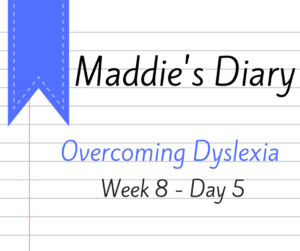 Her tutoring session on Monday was incredible! It actually brought tears to my eyes watching her spell all of those difficult words. I was so impressed! Then she actually spent some independent time studying the spelling words throughout the week for her test on Friday, and she got 100 percent correct on the spelling test. She was so proud of herself, and we are as well!
Her tutoring session on Monday was incredible! It actually brought tears to my eyes watching her spell all of those difficult words. I was so impressed! Then she actually spent some independent time studying the spelling words throughout the week for her test on Friday, and she got 100 percent correct on the spelling test. She was so proud of herself, and we are as well!
She is also improving in her naming skills, and we are working on quite a few different things for that, including her address, city, state, country, continent, and planet, as well as pertinent information about our country. She is also feeling much more independent and confident in herself as she is branching out more and doing things herself. She wanted to buy something online, and she used the computer to find what she wanted all by herself, without any help! She also stayed up late one night reading a book. We were reading a book at bedtime, and she wanted to know what happened, so she kept reading. I have wanted her to WANT to read for so long, that I just didn’t have the heart to make her stop and go to bed, so she stayed up for about an hour reading. She read more than I think she has ever read at one time. I had to help her with some of the words, but she really surprised me with some of the words that she could read. Many were words that she has not been taught yet. We are definitely heading in the right direction, and it is exciting to watch all of the changes!
Maddie writing her first spelling test!
.
.
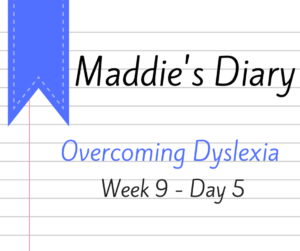 I believe we are on week 9 of our journey with Edublox. Maddie is certainly making a lot of progress, but we still have a long way to go. We have started long vowels with EOT this week, and she has had some difficulty with it. However, she is making a lot of progress in other areas. She is progressing in the other exercises on EOT, as well as the exercises we do at home, such as the spatial exercise, the beanbag exercise, the directionality exercise, and the BDPQ exercise. She is also making a lot of progress with math and counting.
I believe we are on week 9 of our journey with Edublox. Maddie is certainly making a lot of progress, but we still have a long way to go. We have started long vowels with EOT this week, and she has had some difficulty with it. However, she is making a lot of progress in other areas. She is progressing in the other exercises on EOT, as well as the exercises we do at home, such as the spatial exercise, the beanbag exercise, the directionality exercise, and the BDPQ exercise. She is also making a lot of progress with math and counting.
Maddie wrote a story about the broadway play Wicked that we went to see. She used the playbill to spell the names. I did not help her at all, so everything else was spelled on her own. Her handwriting and spelling has improved a lot! I had her read back through it herself after I took this picture, and she caught a lot of the mistakes herself. I helped her to correct it after that, but they were mostly grammatical mistakes because she hasn’t done very much writing at all before now. I love how she is feeling confident in her ability to write on her own, and how that confidence is giving her courage to try new things!
.
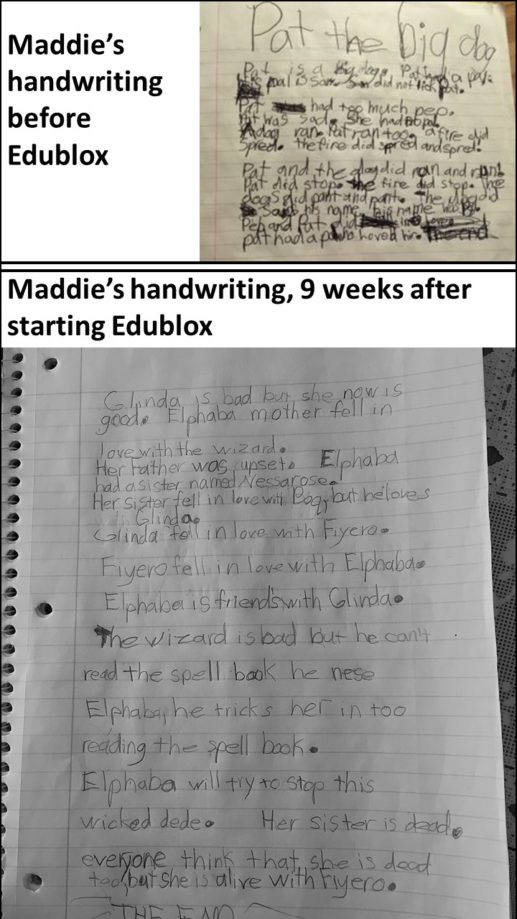
Maddie is also making good progress on the cognitive exercises of Edublox Online Tutor!
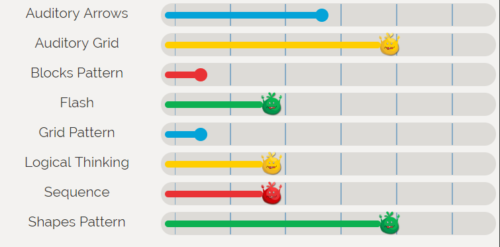
.
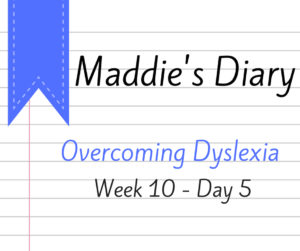 We thought that Maddie might be on a little bit of a plateau, so we did not add any new words this week. She is doing better with the long vowels this week, but for some reason, BDPQ issues are still giving her trouble in her reading this week. However, by the end of the week, she had improved quite a bit. She is making excellent progress with her home exercises, especially the spatial exercise and the beanbag exercise, and she is getting much faster and more accurate on the directionality exercise.
We thought that Maddie might be on a little bit of a plateau, so we did not add any new words this week. She is doing better with the long vowels this week, but for some reason, BDPQ issues are still giving her trouble in her reading this week. However, by the end of the week, she had improved quite a bit. She is making excellent progress with her home exercises, especially the spatial exercise and the beanbag exercise, and she is getting much faster and more accurate on the directionality exercise.
We went to the library, and she picked out several books to READ (not for me to read TO her). She couldn’t wait to read them, and actually read one in the car. It was a beginning reader, but she did pretty well and only needed help on a few words. She was excited that she was able to check out books from the library for her to read by herself!
.
.
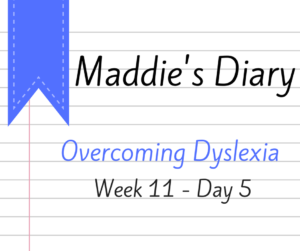 This has been a great week. I have seen a lot of progress in all areas, and she seems to be picking things up quicker than she has before. I believe we are seeing the effects of “building a pyramid of repetition”, as our Edublox tutor has told us. I think we have laid a good foundation, and the new information is becoming easier to lay down. She now has around 400 words that she knows instantly by sight, and she can reliably spell about 150 of them! She has also learned many new spelling patterns that she is able to use correctly. It’s been an exciting week, and we are still looking forward to continuing to learn more!
This has been a great week. I have seen a lot of progress in all areas, and she seems to be picking things up quicker than she has before. I believe we are seeing the effects of “building a pyramid of repetition”, as our Edublox tutor has told us. I think we have laid a good foundation, and the new information is becoming easier to lay down. She now has around 400 words that she knows instantly by sight, and she can reliably spell about 150 of them! She has also learned many new spelling patterns that she is able to use correctly. It’s been an exciting week, and we are still looking forward to continuing to learn more!
.
.
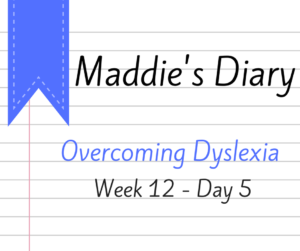 This week has been a great week too, even though we were gone on vacation for part of it. We went on vacation to the beach for a few days, and everyone had a great time! It was amazing to see how many things Maddie was reading on our vacation, things that she never would have attempted before: road signs, informational plaques, brochures, pamphlets, signs of all kinds. It does take her a minute to read them, and she still does make some mistakes, but nevertheless, she is reading them!
This week has been a great week too, even though we were gone on vacation for part of it. We went on vacation to the beach for a few days, and everyone had a great time! It was amazing to see how many things Maddie was reading on our vacation, things that she never would have attempted before: road signs, informational plaques, brochures, pamphlets, signs of all kinds. It does take her a minute to read them, and she still does make some mistakes, but nevertheless, she is reading them!
Also, Maddie is REALLY wanting to read a lot more now! The desire to read is just continuing to increase more and more. I think her brother and sister are getting tired of sitting and listening to her read, since that’s what she wants to do most of the time 🙂 She is also asking to take books to bed to READ, not just look at the pictures like she has done in the past, and the books she is wanting to read are not beginning readers. She is not interested in those. She is picking up grade level or beyond books and wanting to read them, though she is still somewhat slow and is still making some mistakes. I am absolutely thrilled that she is choosing to just sit around during the day and read! I am so glad that the good people at Edublox have created this program that is making all of this possible!
.
.
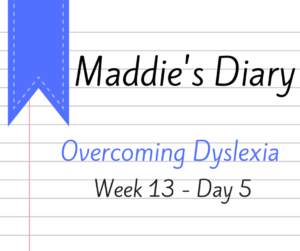 We did an unprepared reading on Monday, and Maddie did brilliant. I have never seen her read so well. I did not immediately realize it, but she read the whole 4 pages without using her finger as a guide! She only lost her place once, whereas before, she often lost her place, even using her finger. She also made very few mistakes, and her fluency was SO much higher. Before starting Edublox, she was reading at a rate of 12 words per minute (and was reading very short passages), but she read the 667 words in this passage at a rate of 48 words per minute. That is a huge improvement in only 13 weeks!
We did an unprepared reading on Monday, and Maddie did brilliant. I have never seen her read so well. I did not immediately realize it, but she read the whole 4 pages without using her finger as a guide! She only lost her place once, whereas before, she often lost her place, even using her finger. She also made very few mistakes, and her fluency was SO much higher. Before starting Edublox, she was reading at a rate of 12 words per minute (and was reading very short passages), but she read the 667 words in this passage at a rate of 48 words per minute. That is a huge improvement in only 13 weeks!
We have now finished our original 13 week plan, and we have seen amazing results, as seen in the many updates, videos, etc. that have been posted along the way. Her reading fluency has quadrupled in speed, and she is able to read so many things that she never would have attempted before. She also has close to 500 sight words if I am not mistaken! Not only that, but she is taking what she knows about these words (such as spelling patterns), and applying them to new words, so the number of words that she can read by sight is much more than 500. Her spelling has greatly improved, and, though she still has more to go, it is amazing to see how much progress she has made in a few short weeks. As far as the rest of the program, she has made tremendous progress in all areas. She has progressed wonderfully in EOT (Edublox Online Tutor), which is specifically working on auditory and visual memory, logical thinking, directionality, and visual sequencing.
Before starting Edublox, Maddie struggled greatly with math facts, and she quite frequently forgot them and had to figure them out laboriously over and over when doing math work. Long addition and subtraction took her forever, because she did not know the math facts, though we had worked on them over and over for years. It would take her 5 minutes or so to do a problem such as 952+236. She has now mastered 75% of all addition and subtraction facts to 12 by memory, meaning she can answer them in only a few seconds. She has also started on multiplication and division, and she is still getting addition and subtraction right. Before Edublox, every time she learned a new concept, she would lose all of the previous information that she had learned, and we would have to start over again with everything. Now, when she learns a new concept, she just adds the new concept, and still retains the previous information, so it is much easier for her to learn new math concepts such as multiplication and division. She also had trouble counting consistently, especially in the higher numbers, but now, not only is she counting fluently, but she can count backwards and is starting to count by multiples too!
As far as the other additional exercises that we do alongside the online program, she is now on the final step of the beanbag activity, whereas before, she could barely even catch the beanbag once or twice using both hands. She has made huge strides on BDPQ confusion and is almost always catching it herself if she writes one incorrectly. The directionality exercise is going very well, and I can see in daily life that she no longer hesitates on left vs. right. When we first started the spatial exercise, I was sure that there was no way she could do the activity with her directionality and spatial challenges, but she is progressing VERY well in this activity. I think she enjoys the challenge of the spatial activity, and she is proud of herself when she gets it all correct. I have also noticed an improvement in her vocabulary and naming issues with the activities that we are doing for both of these issues. Her handwriting is also much improved, as you can see in a previous update. Everyone who knows her is thoroughly amazed at her progress, and we get comments like, “Whatever it is you are doing, KEEP doing it, because her progress is phenomenal!” In all honesty, Maddie has made more progress in the past 13 weeks than she has over the entire course of everything we have tried for the past 5 years! (Read Maddie’s story to see all of the different things we have tried.) In my book, Edublox is nothing short of a miracle, and most definitely the answer to our prayers.
We are continuing the program throughout the summer, but we all need a bit of a break, so we are decreasing to 8 hours per week for the next couple of months. Since we are scaling down over the summer, I will only be writing an update every two weeks. We then plan to keep going to reach our ultimate goal of Maddie reading fluently on grade level. This first part of our journey with Edublox has been incredible, and though there is still a lot more work to do, I am looking forward to what the future holds for Maddie!
.
Unprepared reading: Compare the “before” with Week 13, Day 1:
.
.
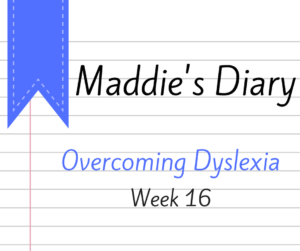 We are now on week 16 of the Edublox program. Maddie is enjoying her summer, playing outside, swimming, etc. She is still doing an abbreviated version of the Edublox program for the summer.
We are now on week 16 of the Edublox program. Maddie is enjoying her summer, playing outside, swimming, etc. She is still doing an abbreviated version of the Edublox program for the summer.
Maddie has now completed all of the steps of the beanbag activity. Like I said in a previous update, when she first started, she could barely catch it with both hands, so that is a huge improvement. She is progressing very well through the EOT reading program. The words in the program have gotten increasingly more difficult, but she is doing well with it. She is surprising me with the words that she can remember how to spell! Instead of having to practice a word over and over, she is starting to pick up the spelling of new words more quickly. Maddie will be at a drama camp at our church all week next week, so we will not be doing much of the program until the following week.
.
.
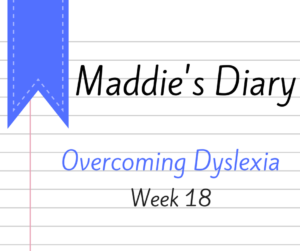 We are all still enjoying the summer as well as trying to get some projects done around the house.We went to the library last week, and Maddie was so excited that she couldn’t wait to start reading her books. I took a picture of her reading a book to herself while we were walking around running errands. She only occasionally asked my help for a word here and there, and she seemed to really enjoy reading the books that she got. They were not beginning readers either. She has been carrying a book around with her all week since then and reading whenever she gets the chance.
We are all still enjoying the summer as well as trying to get some projects done around the house.We went to the library last week, and Maddie was so excited that she couldn’t wait to start reading her books. I took a picture of her reading a book to herself while we were walking around running errands. She only occasionally asked my help for a word here and there, and she seemed to really enjoy reading the books that she got. They were not beginning readers either. She has been carrying a book around with her all week since then and reading whenever she gets the chance.
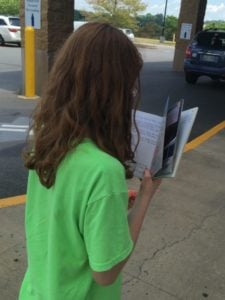
The last couple of weeks, I have been giving her more responsibility to get her school work done on her own. I am expecting her to do certain things on her own and be responsible for getting it done. I think it is time for her to take ownership of her education, so there have been a lot of changes around here. I have also started expecting her to do her own reading and writing when it is required. I had noticed that, when we are doing things together, like watching a movie for example, that she will not try to read words that come up on the screen because she is just expecting that someone else will read it for her. I realized that this was holding her back, so I am no longer reading and writing things for her, though I will provide assistance if necessary. For example, if she needs to read the instructions for a toy and brings it to me, I have been telling her that she needs to read it herself. She had also been using the voice to text feature on her iPad if she wanted to write something, but I have turned that off. If she wants to write something, I hand her a piece of paper and pencil and tell her to go for it! ???? She is doing really well with writing and spelling, but I go through it with her and correct mistakes as necessary. I think since she has been relying on others to read and write for her, it has been enabling her to not have to try or be motivated to learn to read and write on her own. So by taking that away, it is forcing her to draw upon what she is learning and really put it to use instead of taking the easy way and just asking someone else to do it. She doesn’t really like all of these recent changes, because it requires her to work harder, but I think that she will thank me for it later! I am hoping that this is the push that she needs to take her to the next level in her learning!
.
.
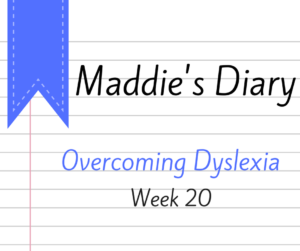 Maddie is doing very well, and I am so proud of her! Her reading fluency has improved to about 75 words per minute. When she started only 20 weeks ago, her fluency was almost nonexistent. She has come so far in such a short time! This wouldn’t have been possible without Edublox. They really have been an answer to prayer! Also, this past week I gave her a math placement test to see what we need to work on with math, and she read everything on the 7 page test by herself! She only came and asked for help on about 4 words, but she did the entire thing independently. There were a lot of word problems on the test too! That has never happened before. I’m pretty sure that she has never even done one math worksheet without me reading the instructions for her, much less a seven page test. I’m just astounded!
Maddie is doing very well, and I am so proud of her! Her reading fluency has improved to about 75 words per minute. When she started only 20 weeks ago, her fluency was almost nonexistent. She has come so far in such a short time! This wouldn’t have been possible without Edublox. They really have been an answer to prayer! Also, this past week I gave her a math placement test to see what we need to work on with math, and she read everything on the 7 page test by herself! She only came and asked for help on about 4 words, but she did the entire thing independently. There were a lot of word problems on the test too! That has never happened before. I’m pretty sure that she has never even done one math worksheet without me reading the instructions for her, much less a seven page test. I’m just astounded!
I dropped her off at church camp this weekend, and they said I could write a card to be delivered to her during camp that week. For the first time, I was able to write her card without having to specifically think of how to write it using words she could read. I just wrote what I wanted to say and felt confident that she would be able to read it without difficulty. It was a wonderful feeling, knowing that she would feel only our love through the writing on the card, and not be embarrassed that she couldn’t read it. I am so glad that she is going to have a wonderful time at camp and that there will be nothing holding her back, now or in the future!
.
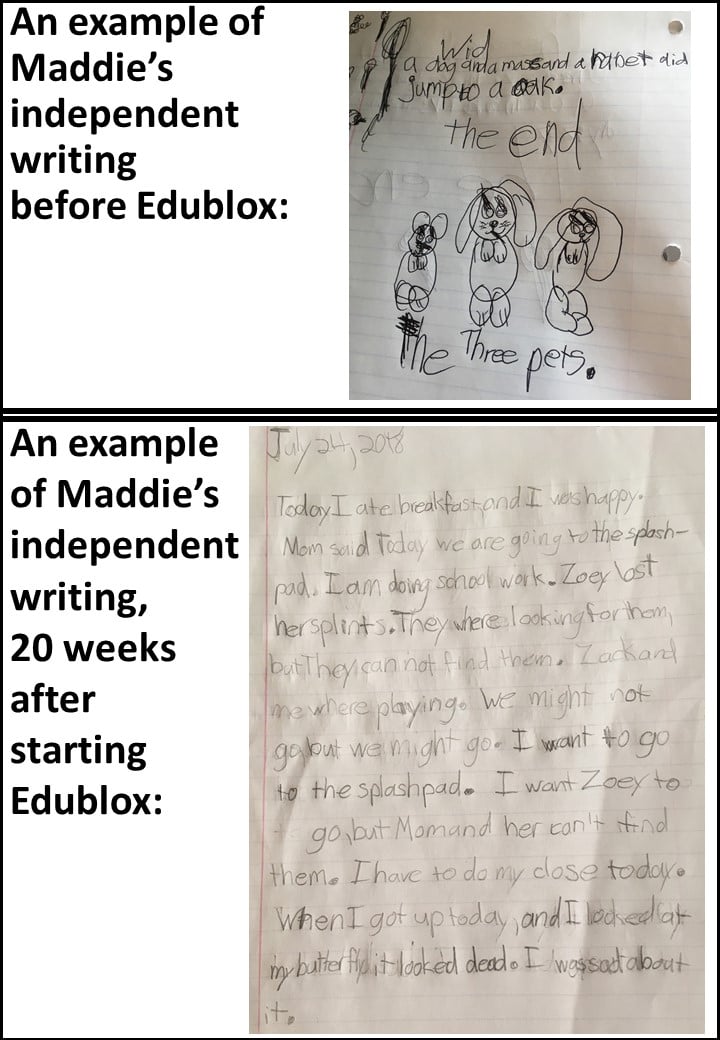
.
.
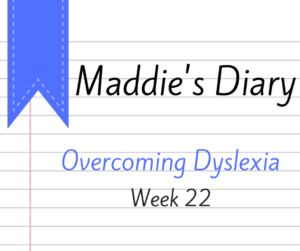 Maddie had testing done at our local school this week. They said that she is reading at about a third grade level, and they also felt that her writing was at about a third grade level. That is pretty amazing, since both were at a Kindergarten level only 6 months ago! They said she had a few deficits in math, mostly because she does not know all of her multiplication and division facts yet, but that overall she did pretty well in math. They said that mostly her main deficit seemed to be with overall language and vocabulary, which we are now also working on particularly in our Edublox program. However, they thought that she could function in a fourth grade classroom with some assistance, which they are going to provide.
Maddie had testing done at our local school this week. They said that she is reading at about a third grade level, and they also felt that her writing was at about a third grade level. That is pretty amazing, since both were at a Kindergarten level only 6 months ago! They said she had a few deficits in math, mostly because she does not know all of her multiplication and division facts yet, but that overall she did pretty well in math. They said that mostly her main deficit seemed to be with overall language and vocabulary, which we are now also working on particularly in our Edublox program. However, they thought that she could function in a fourth grade classroom with some assistance, which they are going to provide.
We feel like this is a great option for her at this point. She also very much wants to go to school, especially after seeing her brother and sister going. So, we will continue to do her hour of Edublox after she gets home from school. The school said that she shouldn’t have much homework, because they have a pretty strict homework policy that only allows the teachers to assign a small amount of homework. We have thought and prayed about this decision, and we very much feel that this is best after talking to the school. I know she is not done with Edublox, and we will be carrying on with Edublox until she is done. She still has much more to go, and I feel that her being in a school classroom with actually help encourage her to work and try harder than she is at home. With a teacher at school expecting her to try her best, I think it will spur her on to give her very best effort. I think that the combination of being at school and continuing with Edublox will be a very good combination for her and for our family. I have to say that the mere fact that I feel comfortable putting her in a public school classroom says a lot about the progress she has made. I could not even consider it last year, because she could hardly read or write at all.
As always, I am extremely grateful for everyone at Edublox for giving my daughter her life back, and for her to be able to go to school and enjoy life!
.
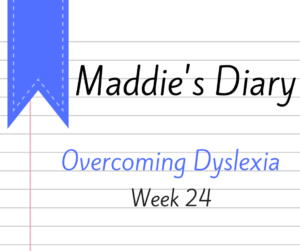 .
.
I met with all of Maddie’s teachers this week. Her language arts teacher said that she could tell Maddie was having difficulty, but she was not aware that Maddie had dyslexia. She said that Maddie is an excellent student because she works hard and always tries her best. Maddie was given the STAR Reading Assessment by the school, which is a measure of reading ability, but depends even more on the student’s vocabulary. Though Maddie has greatly improved in her reading ability, vocabulary remains her greatest weakness. We are currently working very hard on vocabulary and devoting a lot of our Edublox time to it as well. Even so, the STAR test has shown that, at a minimum, she has gained 2 years of reading ability in 6 months. Considering that this test measures reading ability based on vocabulary, which is her greatest weakness at this point, I would say that the results are very positive!
I also had a meeting with Maddie’s math teacher to see how Maddie is doing so far and if there is anything specific she needs to work on. She said that she thought Maddie was doing very well. She also said that Maddie participates in class, and she even goes up to the board and works problems in front of the class. The teacher said Maddie has surprised her several times, even sometimes knowing answers when no one else did. 🙂 She was actually very surprised when I told her that Maddie had dyslexia. She said she would not have known. She described Maddie as “very smart”, “sweet”, “delightful”, and “very hard working”. She told me that she very much enjoyed having Maddie in class. She said that the main deficit is her multiplication facts, and she needs to learn them as quickly as possible. I was so impressed, because I never dreamed that Maddie would be getting up and working problems in front of the class! I mean, that means that her self esteem has not just improved, it has skyrocketed! Maddie would have never have even thought about doing that 6 months ago. I have to say that she seems so much more confident since going to public school. The combination of the skills and knowledge she is gaining through Edublox and going to public school seem to be working out perfectly for Maddie. I am sure now that we made the right decision. 🙂
But here is the best part: Maddie completed her first math test and scored an A! Yes, an A! Her teacher said it was one of the highest grades in all of fourth grade, not just her class!
.
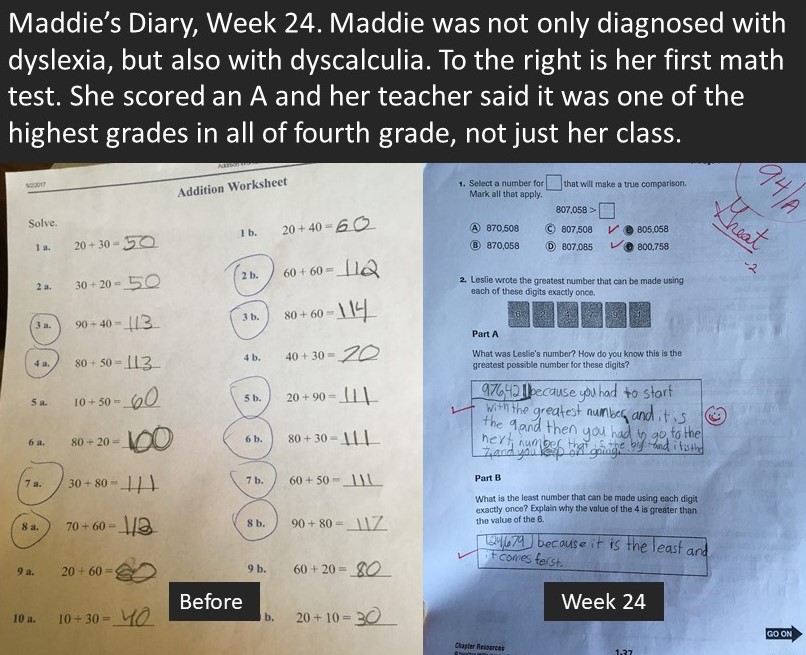
.
The school year is well under way, and Maddie has been hard at work. Between school work and Edublox she is one busy girl, but she is taking it in stride and doing well. She very much enjoys school and is making lots of friends. She still comes home many days and tells me that she was the only one in the class who could answer some of the questions that the teacher asked in class. She is so confident and sure of herself — so different from where she was before starting Edublox.
Maddie’s mid-term progress report came home a couple of weeks ago, and it showed that she has A’s and B’s so far! She had received a grade of 53% of her first Language Assessment in Language Arts, but I think that was mainly due to her lack of grammar instruction. The reading curriculum we had been using before Edublox did not teach grammar, and our main focus while working intensively with Edublox was reading and spelling. Her second Language Assessment was much better at 76%, so she made a lot of gains in only a few weeks. In the past, it has taken her months or years to retain information, but she picks up new information so quickly now after working with Edublox. She had her second math test, and she scored 83%. This test was on multiplication, which we are still working on. She also had her first test in Social Studies and scored 95%, which is an A! She just brought home her latest science test today, and she made 100%! She said that she was one of only a few who made 100% on that test.
To sum all of this up: there is no way that Maddie could have done what she is doing before working with Edublox. She could not have been making A’s and B’s. In fact, I am certain that she would not even be able to function in a regular classroom. To not only be able to function, but actually do very well, is a miracle in itself, and we couldn’t be happier!
.
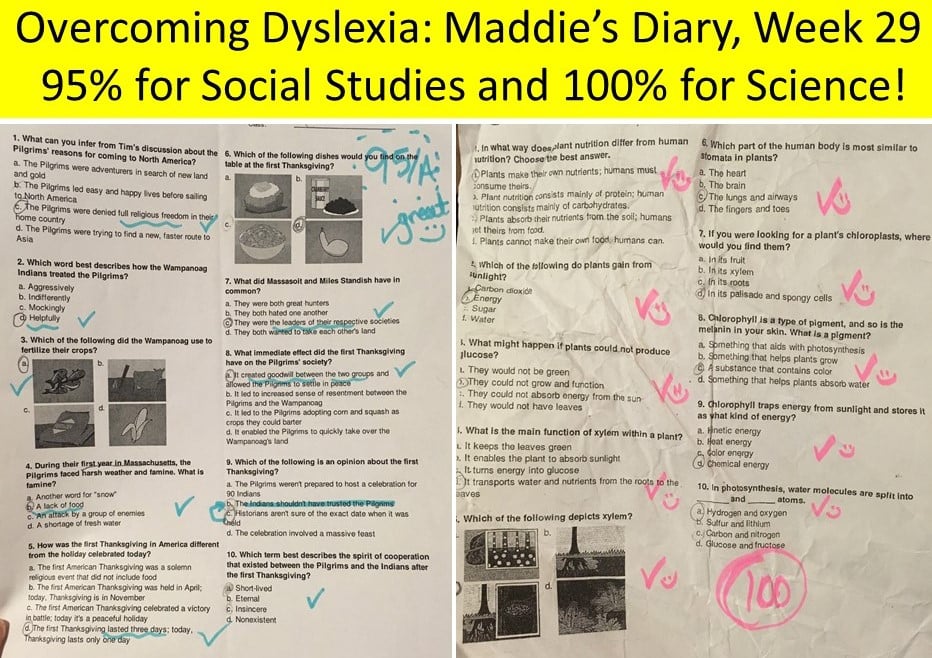
.
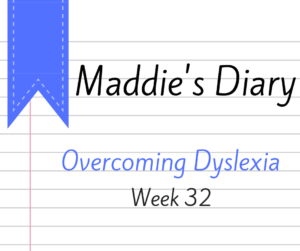 Maddie has been doing well and has been doing exceptionally well in school. I had parent teacher conferences this week, and her teachers just couldn’t say enough good things about her. They all praised her hard work and how she always tries her best. Her science and social studies teacher was amazed that she volunteers to read from the textbook in front of the class and that she always wants to read her work or present things to the class when given the opportunity. Her language arts teacher says that she is very impressed with Maddie’s work and that it has exceeded her expectations, especially considering all that Maddie has worked to overcome. She said that Maddie is still behind in her writing, spelling, and reading, but that she has no doubt that she will overcome it. Her math teacher says that she feels like math is Maddie’s strength. She is one of the top students in her class in math, and her teacher was just overjoyed with how well she is doing. Her report card reflected all of her hard work and how far she has come, because she got all A’s and B’s! She was very happy with it, although she said she wishes it were all A’s. I told her that her report card was excellent, but I think she is still striving to get all A’s on her next one.
Maddie has been doing well and has been doing exceptionally well in school. I had parent teacher conferences this week, and her teachers just couldn’t say enough good things about her. They all praised her hard work and how she always tries her best. Her science and social studies teacher was amazed that she volunteers to read from the textbook in front of the class and that she always wants to read her work or present things to the class when given the opportunity. Her language arts teacher says that she is very impressed with Maddie’s work and that it has exceeded her expectations, especially considering all that Maddie has worked to overcome. She said that Maddie is still behind in her writing, spelling, and reading, but that she has no doubt that she will overcome it. Her math teacher says that she feels like math is Maddie’s strength. She is one of the top students in her class in math, and her teacher was just overjoyed with how well she is doing. Her report card reflected all of her hard work and how far she has come, because she got all A’s and B’s! She was very happy with it, although she said she wishes it were all A’s. I told her that her report card was excellent, but I think she is still striving to get all A’s on her next one.
.
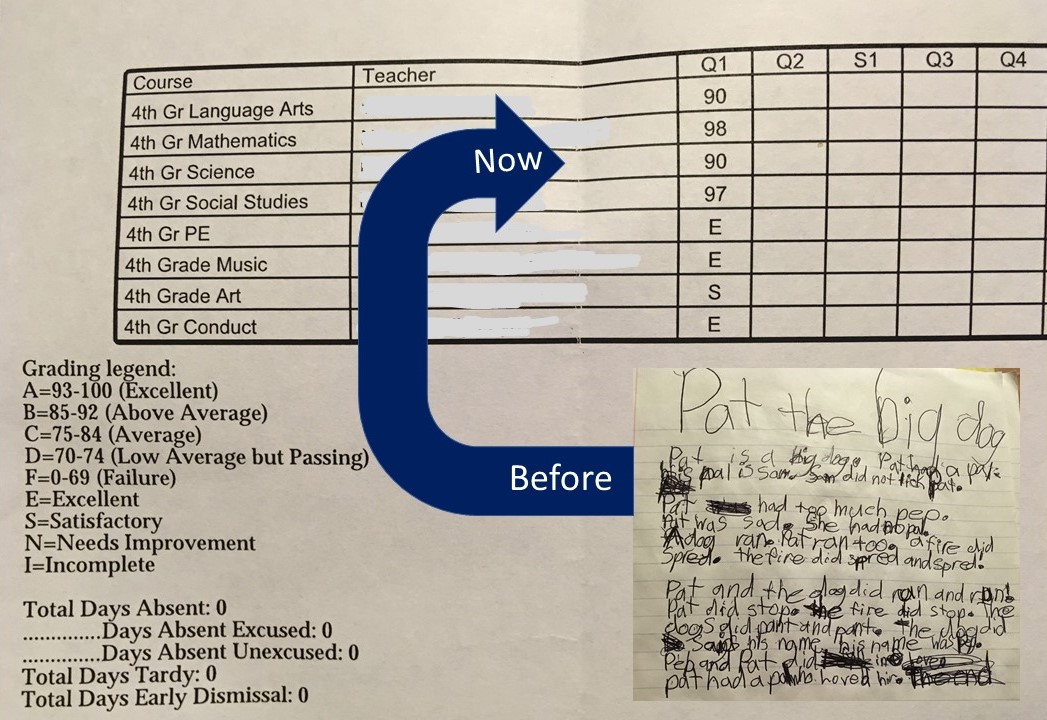
.
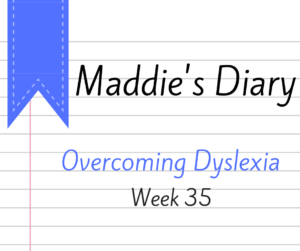 We have now completed 35 weeks of the Edublox program. Just about 9 months ago, we started a program that was completely different than anything we had tried before. I felt like I was going out on a limb, but it turned out to be the path forward for us and for Maddie. If you have been following along, you know that we had tried just about everything before starting the Edublox program, and it turned out that Edublox was the missing piece in helping Maddie to learn to read. She is now in 4th Grade in public school and doing well. She made all A’s and B’s on her first report card and has gotten glowing reviews from all of her teachers.
We have now completed 35 weeks of the Edublox program. Just about 9 months ago, we started a program that was completely different than anything we had tried before. I felt like I was going out on a limb, but it turned out to be the path forward for us and for Maddie. If you have been following along, you know that we had tried just about everything before starting the Edublox program, and it turned out that Edublox was the missing piece in helping Maddie to learn to read. She is now in 4th Grade in public school and doing well. She made all A’s and B’s on her first report card and has gotten glowing reviews from all of her teachers.
Maddie has currently reached a place where she is done with the Edublox program, and we are going to turn our focus to her schoolwork and her personal interests. We are still going to continue some of the exercises so that she does not backslide, and she is going to have some intermittent reviews with an Edublox tutor. We will continue to update the diary if we have new and exciting information. Thank you to everyone who has followed along with Maddie’s Diary and for all of the support that she has received from everyone! And most of all, thank you Edublox for making all of this possible for Maddie!
.
Reassessment, October 2018
Maddie had her last Edublox session on November 1, 2018. We have been working for 35 weeks and are of the opinion that the underlying deficits have been eradicated, and that she now needs to focus exclusively on getting her reading and spelling on grade level. We advised that Maddie’s language arts teacher provides a list of words appropriate for 4th grade, and that these words be used for a reading/spelling exercise, 30 minutes, four times per week. Words that have been covered so far, must be reviewed once a week.
Maddie was reassessed on October 8 and 10, 2018, by one of the same psychologists who had done her previous tests, and did not know about the intensive cognitive intervention. The results were received on November 20. Below are the IQ test results — an increase of 16 IQ points compared to the assessment in September 2015, and 22 compared to the assessment in September 2016!
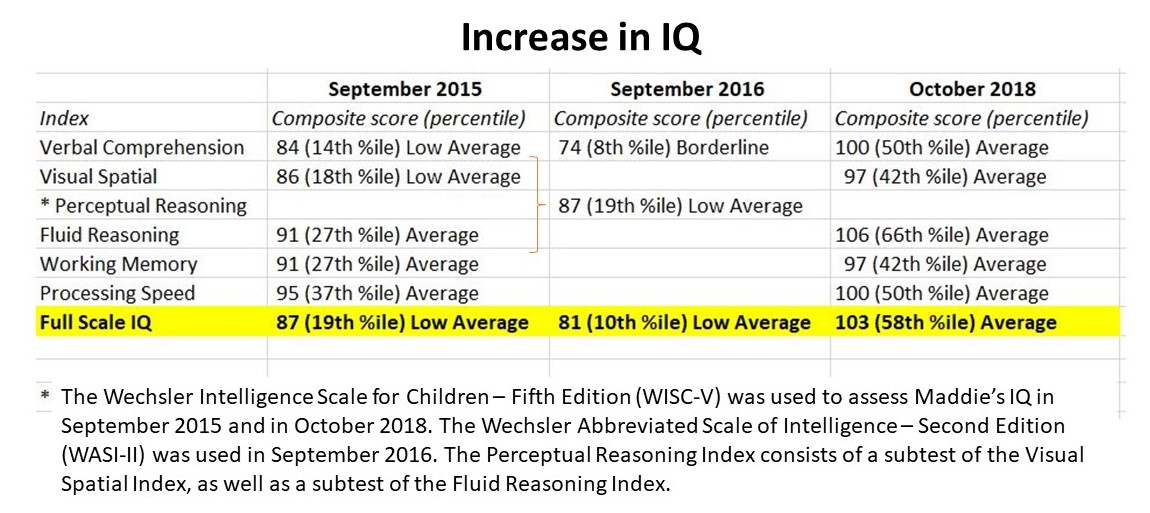
.
Below is a graphic presentation of the three IQ tests done, two before Edublox (2015 and 2016), and one after Edublox (2018):
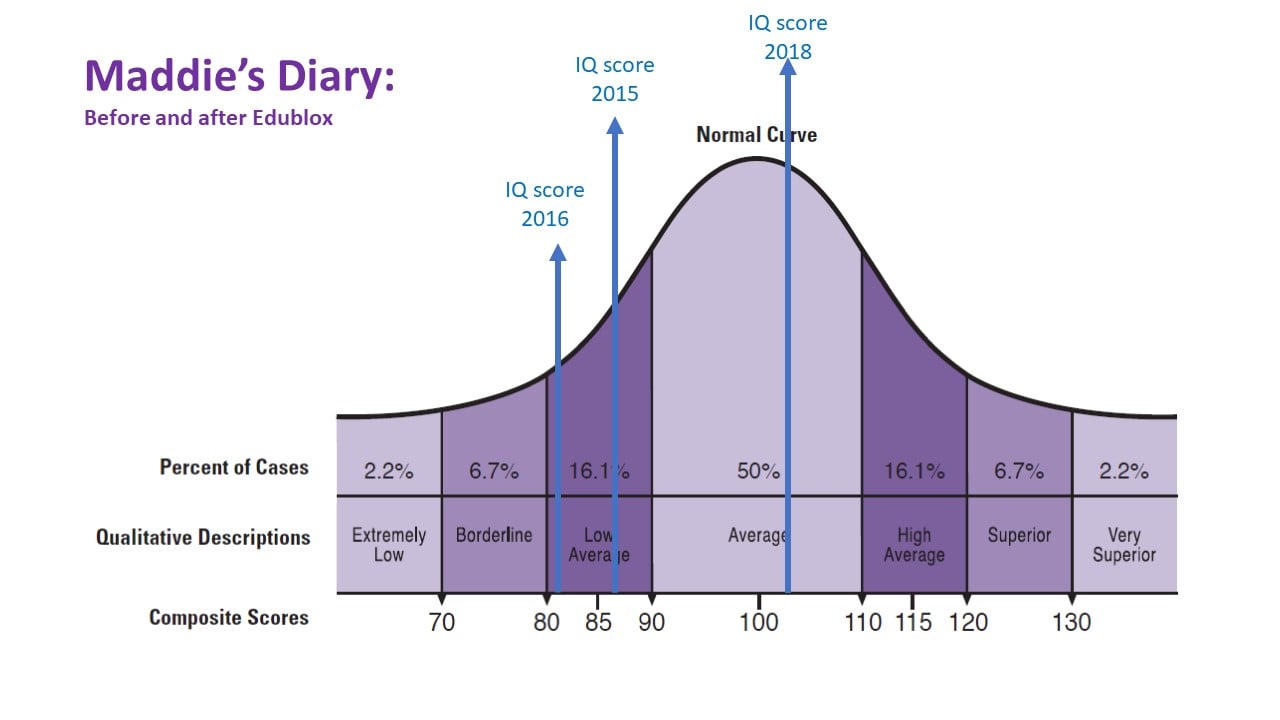
The increase in IQ matches previous Edublox research projects, including a study done as early as 1987.
Beery Developmental Test of Visual-Motor Integration
To examine Maddie’s visual-motor integration and visual perception skills, the Beery Developmental Test of Visual-Motor Integration was administered. Compared to others her age, Maddie obtained an overall standard score of 91 (27th percentile), which falls in the Average range. Her previous score fell in the Low Average range.
Comprehensive Test for Phonological Processing
The CTOPP Test assesses phonological awareness, phonological memory and rapid naming.
Phonological awareness is the understanding that language is made up of individual sounds (phonemes) which are put together to form the words we write and speak. Children who have difficulty with phonological awareness will often be unable to recognize or isolate the individual sounds in a word, recognize similarities between words (as in rhyming words), or be able to identify the number of sounds in a word.
The Phonological Memory Test assesses auditory memory and sequencing by asking students to remember strings of numbers or to repeat nonsense words of increasing length and complexity. The improvement Maddie made on this subtest matches the results of a recent research study, in which Edublox Online Tutor improved the auditory memory of the experimental group significantly in 28 hours over 3 weeks, compared to two control groups.
Rapid Symbolic Naming improved from a standard score of 6 to a standard score of 79, or below the 1st percentile rank to the 8th percentile rank.
.
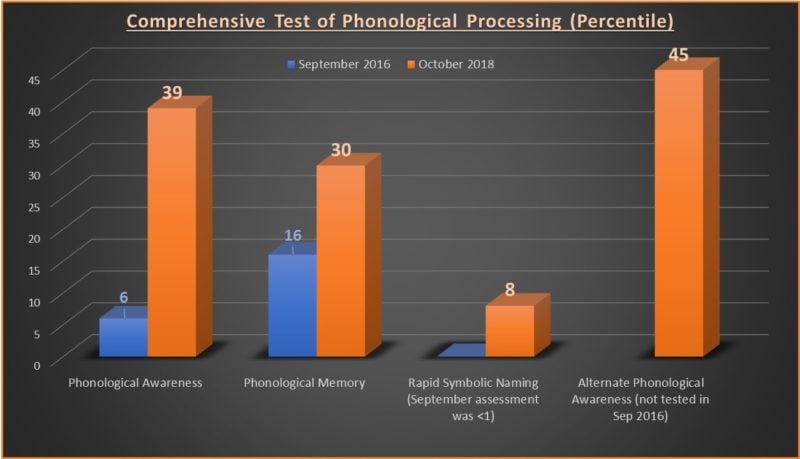
.
Wechsler Individual Achievement Test, 3rd edition (WIAT-III)
The Wechsler Individual Achievement Test, 3rd edition (WIAT-III), published by Pearson, is an individual, standardized measure of academic achievement (reading, written language, math and oral language) for students in pre-Kindergarten through 12th grade (age 4 years, 0 months to 19 years, 11 months). Suitable for use in educational, clinical, and research settings, the stated purposes of the WIAT-III are to identify student academic strengths and weaknesses, inform special education eligibility and/or placement decisions, inform the diagnosis of specific learning disabilities, and to aid in the design of instructional objectives and interventions.
Although Maddie’s reading has improved tremendously her reading speed is still slow and not on par with her age group yet. However, when she reads untimed, her comprehension is on par, according to the WIAT-III Reading Comprehension subtest. This subtest measures untimed reading comprehension of various types of text, including fictional stories, informational text, advertisements, and how-to passages. The student may read the passages aloud or silently. After each passage, the student orally responds to literal and inferential comprehension questions that are read aloud by the examiner. Maddie’s score on this subtest improved from a standard score of 1 (extremely low) to a standard score of 105 (average), or a <1st percentile rank to the 63rd percentile rank!
Although the WIAT-III Written Expression subtests were not done in 2016, we know that Maddie’s spelling and writing were very poor, so it is great to see that she achieved an overall standard score of 89 (average) on these subtests.
Mathematics improved from 72 (very low) to 87 (average) and Math Fluency from 64 (extremely low) to 92 (average)!
Sentence Repetition, which measures oral syntactic knowledge and short-term memory, improved from 74 (below average) to 92 (average) and Oral Expression, which measures speaking vocabulary and word retrieval ability, from 69 (very low) to 97 (average)!
.
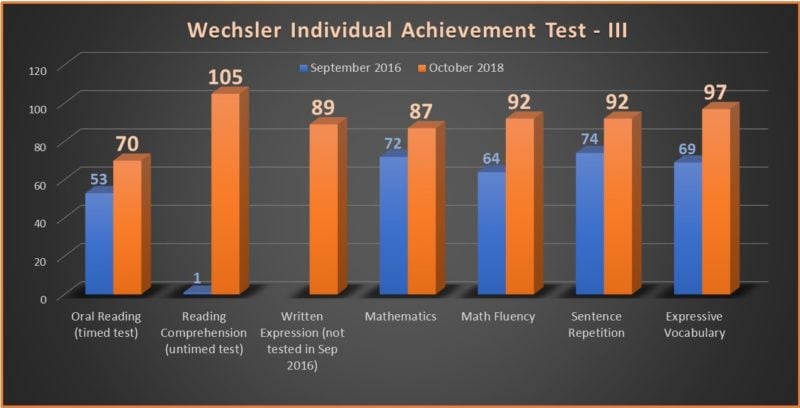
.
More news on Maddie…
On January 5, 2019 Kimberly emailed a short update:
“Maddie has also been doing well and seems to be maintaining what she has learned. We are currently working on reading assignments for school, and she is doing well with it. She also has been doing some reading for pleasure. Mostly what she wants to read is above her reading level, but if she wants to read it, she is pretty motivated. She read a children’s version of Black Beauty that was about a third or fourth grade level, and she thoroughly enjoyed it. She is also reading a Nancy Drew book right now, and it is something like a 6th grade level I believe. That is not to say that that is her reading level, but if she is motivated and wants to take the time to figure out the words, she will make it happen. :)”
.
.
On January 12, 2019 Kimberly emailed a photo of Maddie’s 4th grade second quarter report card. She got all A’s!!
.
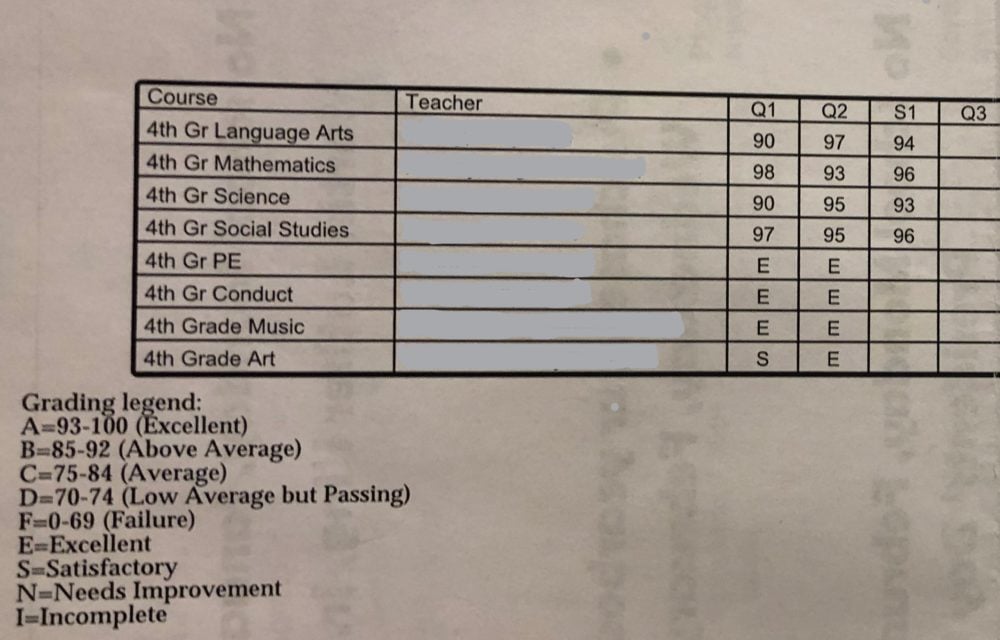
.
.
On May 5, 2019 Kimberly shared Maddie’s STAR Reading test results…
Maddie took the STAR Reading test at her school on May 2, 2019 and, reading at 127 words per minute and achieving domain scores ranging between 81 and 94 percent, ranked at the 55th percentile — she scored higher than 55% of 4th grade students nationally!
.
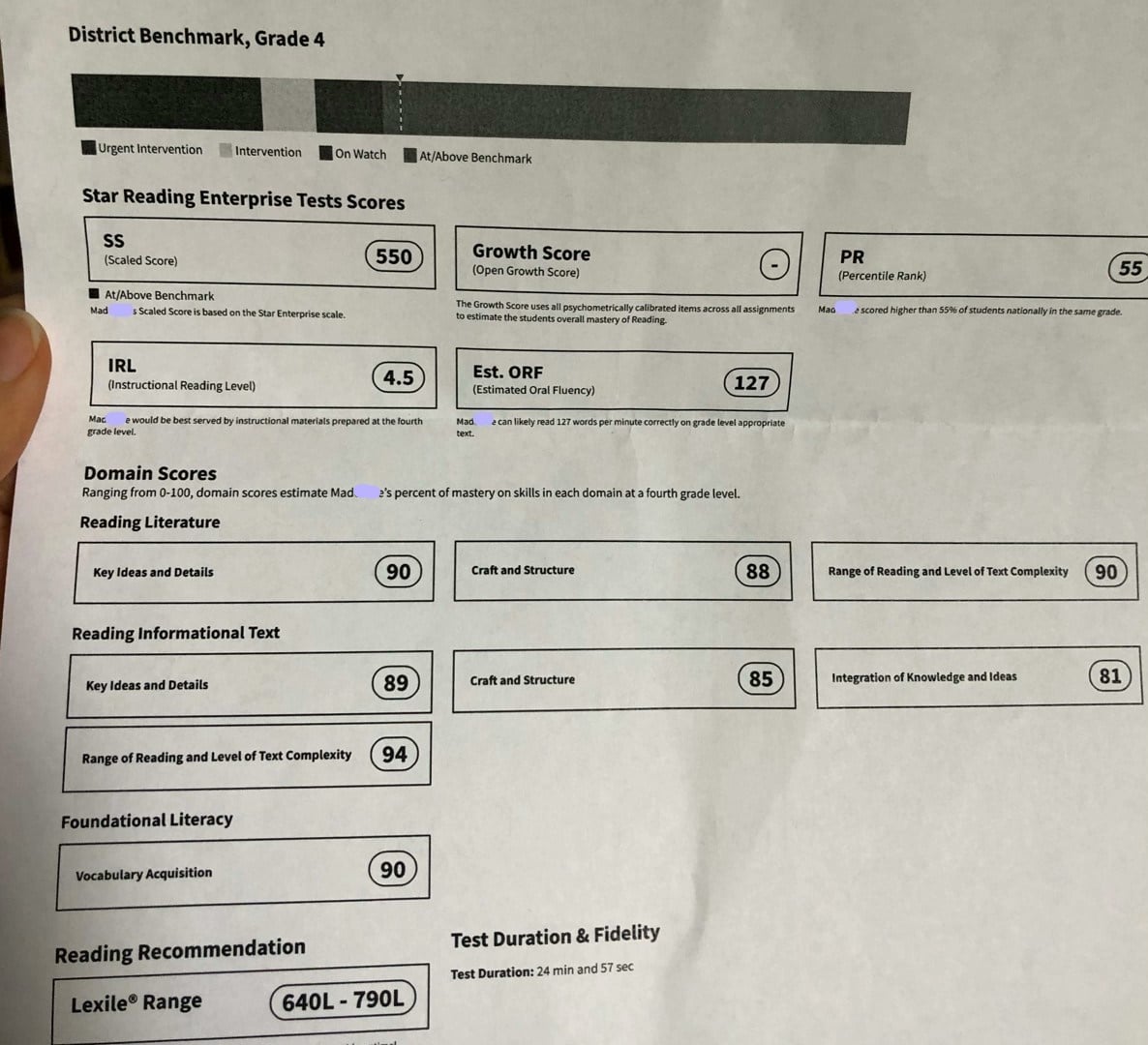
.
.
On May 23, 2019 Maddie’s school awarded her with the Most Improved Certificate for math and a Certificate of Academic Excellence for Language Arts!
.
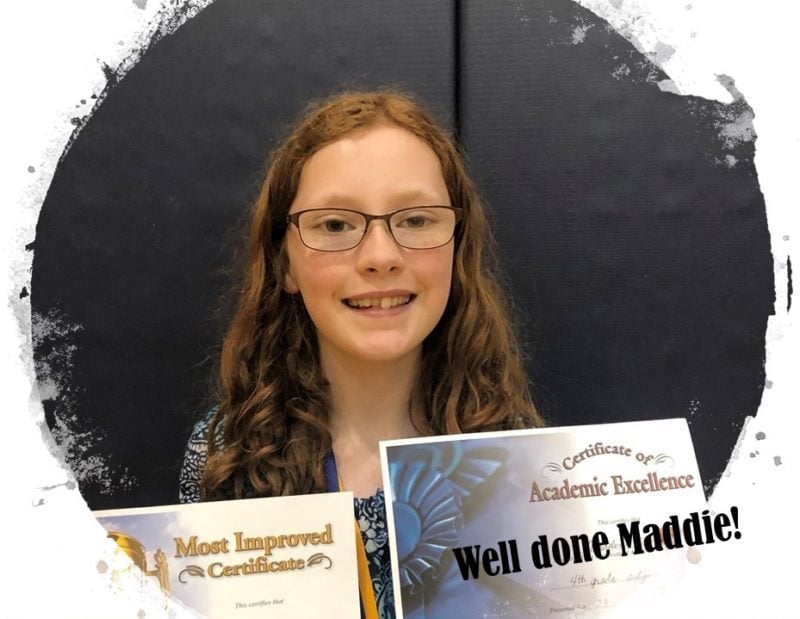
THE END

